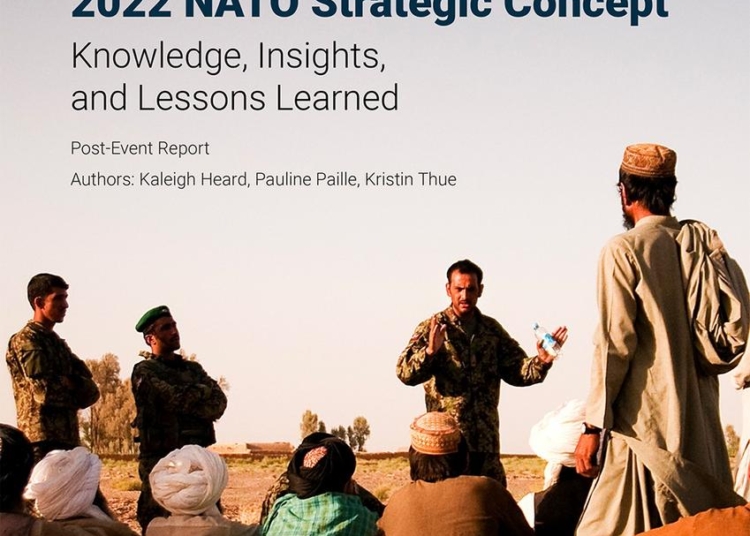This content introduces the topic of NATO’s role in the fight against terrorism. It provides an overview of NATO as an intergovernmental military alliance and highlights how it has evolved to address various security challenges, including terrorism. The content discusses NATO’s strategies and initiatives in countering terrorism, such as collective defense, collective action, intelligence sharing, and cooperation. It emphasizes the importance of comprehensive approaches, building partnerships, and adapting to evolving threats in effectively countering terrorism. The content concludes by stating the significance of NATO’s commitment to countering terrorism for the security and stability of its member states and the wider international community.
NATO and the Fight Against Terrorism: Strategies and Lessons Learned
Introduction
The North Atlantic Treaty Organization (NATO) is an intergovernmental military alliance established in 1949, comprising of 30 member countries from North America and Europe. While initially formed to counter the Soviet Union during the Cold War, NATO has since evolved to address a wide range of security challenges, including terrorism.
NATO’s Role in Countering Terrorism
NATO identified combating terrorism as one of its core tasks following the September 11, 2001 attacks in the United States. Since then, NATO has implemented several strategies and initiatives to effectively counter the threat of terrorism.
Collective Defense and Collective Action
NATO’s fundamental principle of collective defense serves as the primary framework for addressing terrorism. Article 5 of the NATO treaty states that an attack on one member is considered an attack on the entire alliance, triggering a collective response. This provision ensures that NATO member states stand united and committed in the fight against terrorism, providing a deterrent effect.
Additionally, NATO engages in collective action by deploying military forces and conducting joint operations to combat terrorist groups and support stability in conflict regions. For example, NATO-led International Security Assistance Force (ISAF) mission in Afghanistan aimed to counter terrorism and support the Afghan government in establishing security and sovereignty.
Intelligence Sharing and Cooperation
NATO member states recognize the importance of intelligence sharing and cooperation in effectively countering terrorism. The alliance facilitates the exchange of information and expertise among member states, improving situational awareness and enabling coordinated efforts against terrorist networks.
NATO’s intelligence-sharing activities include the Joint Intelligence, Surveillance, and Reconnaissance (JISR) initiative, which enhances collaboration among member states and supports counter-terrorism operations. Furthermore, NATO works closely with other international entities, such as the United Nations and the European Union, to strengthen cooperation and coordination in counter-terrorism efforts.
Lessons Learned
Over the years, NATO has gained valuable insights and learned important lessons in its fight against terrorism. These lessons provide a foundation for improving strategies and ensuring more effective counter-terrorism measures.
Comprehensive Approaches
NATO recognizes the necessity of comprehensive approaches in countering terrorism. Military force alone cannot address the underlying factors that contribute to the emergence of terrorist groups. Therefore, NATO emphasizes the importance of combining military, diplomatic, economic, and developmental tools to combat terrorism comprehensively.
By implementing comprehensive approaches, NATO helps address root causes, counter radicalization, and support stabilization efforts in conflict-affected regions, leading to long-term solutions rather than just temporary military victories.
Building Partnerships
NATO has understood the significance of building partnerships to effectively combat terrorism. The alliance works closely with partner countries, regional organizations, and non-governmental organizations to enhance capacity building, improve intelligence sharing, and coordinate efforts in counter-terrorism operations.
Through initiatives like the Partnership for Peace and the Mediterranean Dialogue, NATO engages with partner countries to strengthen their capabilities in fighting terrorism, while also promoting stability and regional cooperation. NATO’s partnerships create a network of collective security and contribute to a more coordinated global response to terrorism.
Adapting to Evolving Threats
NATO continuously adapts its strategies and capabilities to address evolving terrorist threats. As terrorism tactics and technologies evolve, the alliance recognizes the need for innovation and flexibility in its response.
Through robust intelligence gathering, research, and development programs, NATO aims to stay ahead of emerging threats by enhancing technological capabilities and sharing best practices among member states. This adaptability ensures NATO remains effective in countering both present and future terrorist challenges.
Conclusion
NATO plays a crucial role in the fight against terrorism by employing collective defense, intelligence sharing, and cooperative partnerships. Through its experience and lessons learned, the alliance has developed comprehensive approaches, built valuable partnerships, and adapted to evolving threats. As terrorism remains a significant global challenge, NATO’s continued commitment to countering terrorism is fundamental in ensuring the security and stability of its member states and the wider international community.













